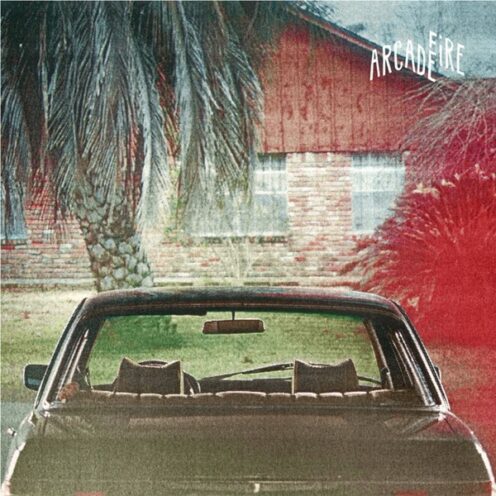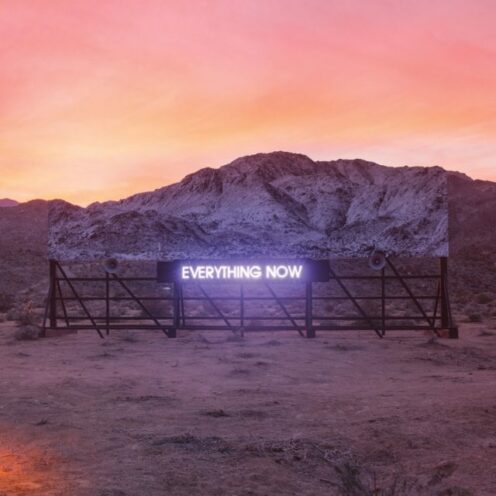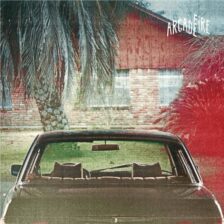When Arcade Fire won the Album of the Year Grammy for The Suburbs on February 13, 2011, it was legitimately shocking. Sure, the Grammys, as an institution, are known for weird out-of-left-field choices, particularly in the Album of the Year category, where the favorites (either odds-wise or in terms of public or critical sentiment) regularly lose to something a bit more sentimental (think Green Day, Usher, Alicia Keys, and Kanye West all losing to the late Ray Charles in 2005) or maybe just a bit more white (Beyonce’s self-titled smash losing to an unexceptional late-career Beck album in 2015). But The Suburbs was different. There was no precedent for an indie band taking the top prize. A band hadn’t won the award period since U2 and Dixie Chicks won back-to-back in 2006 and 2007. The other contenders were also all gargantuan albums that had spawned at least one ubiquitous, generational hit: Katy Petty’s Teenage Dream, Eminem’s Recovery, Lady Gaga’s The Fame Monster, Lady Antebellum’s Need You Now. Arcade Fire weren’t nobodies: they’d made arguably the second most acclaimed album of the 2000s with 2004’s Funeral (the first most acclaimed being Radiohead’s Kid A), and The Suburbs had even debuted at the top of the Billboard 200. But next to a gaggle of mainstream hit machines, the Canadian indie rock band didn’t stand a chance.
Read More “Arcade Fire – The Suburbs”Review: Arcade Fire – Everything Now
When Arcade Fire won the Album of the Year Grammy for The Suburbs, it felt like the beginning of something. Six years on from Funeral, the record that made the band torchbearers of the critically acclaimed indie rock scene, here they were, finally being recognized on the big stage. The records they beat—pop juggernauts from Katy Perry, Eminem, Lady Gaga, and Lady Antebellum—were all more indicative of what the radio sounded like in 2010. But Arcade Fire’s victory showed that, maybe, the pop world was finally ready to embrace something darker and more nuanced. Maybe they were ready to let a rock band back into the fold.
Looking back now, the Grammy win feels more like the end of something. Future Grammy winners didn’t sound or look much like Arcade Fire. Neither did radio stars. Instead, on 2013’s Reflektor, Arcade Fire started looking (and sounding) a lot like the pop insiders. Just like most of the other marquee acts that released albums that year—Daft Punk, Justin Timberlake (x2), Jay-Z, Eminem, Katy Perry, Lady Gaga—Arcade Fire made it clear that they were going for a capital-B Blockbuster. The rollout was excessive and overblown; the album was long and ambitious; the hype stretched on for months. And the songs…well, they didn’t have that much to offer, at the end of the deep, deep rabbit hole that Arcade Fire dug for fans. Writing for Grantland, Steven Hyden called 2013 “The Year Music Failed to Blockbust.” He wasn’t wrong, and Arcade Fire was at the center of it.



